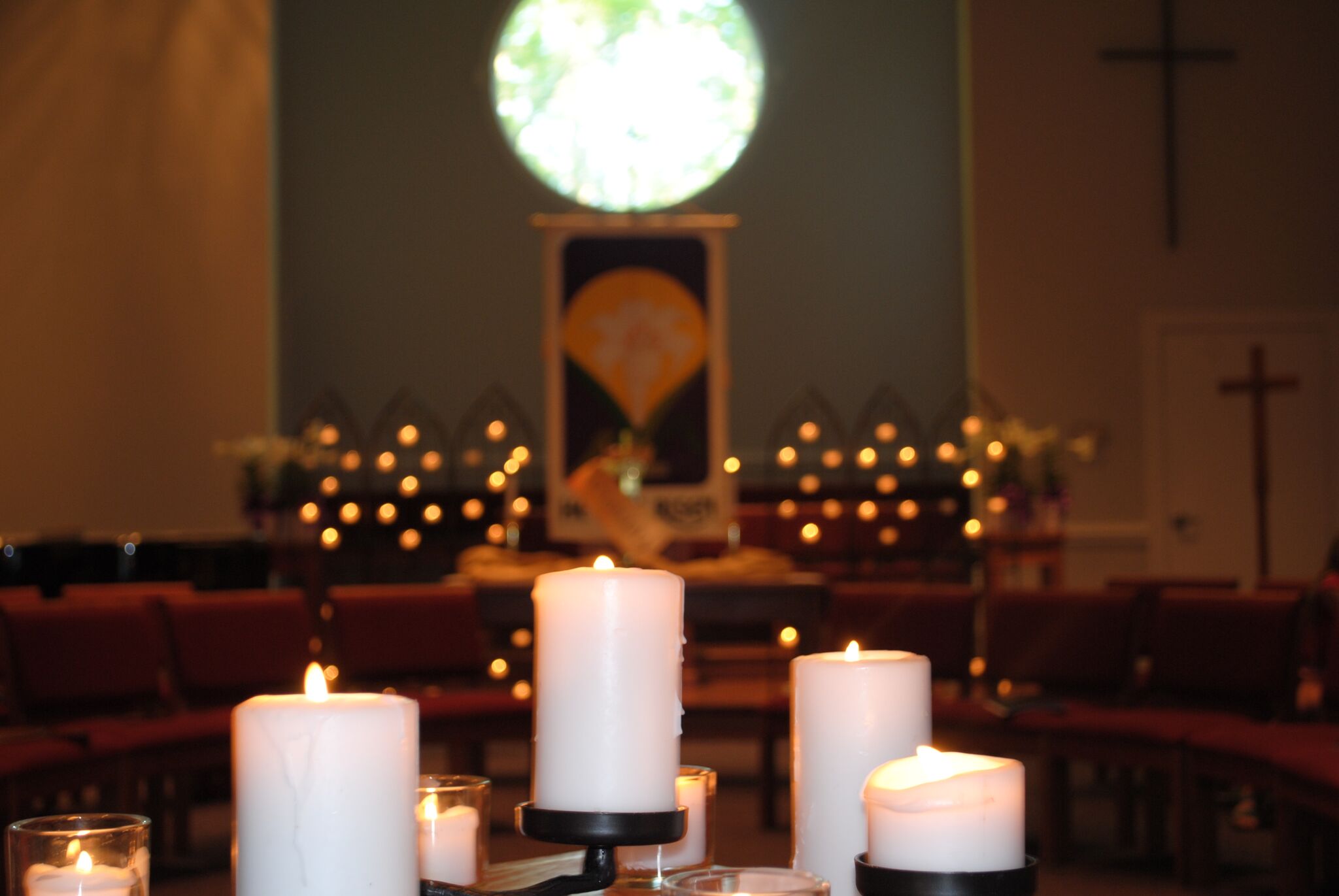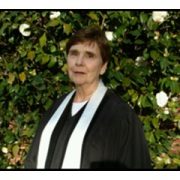Live Life To Give Life

LIVE LIFE TO GIVE LIFE
Rev. Tillie Duncan
Sardis Baptist Church
February 25, 2018
Mark 8:31-9:1
Sunday, Feb. 25, 2018
“Stone walls do not a prison make,
Nor iron bars a cage.”
Richard Lovelace penned these poetic lines from Gatehouse Prison in 1642. He had defied the government of Charles 1 of England by making public his views against the Clergy Act of 1640.
Henry David Thoreau must have felt the same. Speaking of his experience in the Concord, MA jail, he indicated that he had never felt so free. He was arrested and jailed for failing – not only failing, but refusing — to pay the poll tax; he was six years in arrears. It was one way in which he raised his voice against slavery and against the Mexican-American War. He deemed the war an imperialistic invasion carried out to expand and strengthen the pro-slavery forces in the country. He also participated in the Underground Railway and vocally supported abolitionist John Brown.
In his essay on civil disobedience, he advocated radical social action, standing up against unjust forms of authority. We must not allow government to atrophy our conscience or acquiesce to being made agents of corruption and injustice was his theme. And one must not just vote for justice; one must be just. (On Civil Disobedience, 1849)
At the end of his life, Thoreau was asked by a relative, “Have you made your peace with God?”
“I didn’t know we had ever quarreled,” was his staunch reply.
Jesus knew what it is to be free. His will was to do the will of God. He would NOT acquiesce to the Pharisees, the Sadducees, or any of the other Jewish ruling parties. He wanted nothing to do with the perpetuation of injustice, with corruption. Jesus’ understanding of God ran contrary to that of the Jewish leaders, even contrary to the understanding of his own disciples. Because he knew that going up against the system would bring consequences, he wanted his disciples to know the danger of butting heads with the dominant cultural mores.
Peter, bless his heart, was an awful lot like us. He simply could not comprehend that bad things can happen to good people. He probably said something like this: “Jesus, how can you say that?! Look, sick people are healed; hungry people are fed; depressed people are encouraged. When you become the supreme leader and rid us of these oppressive Romans, the Jewish leaders will fall in line. They’ll be eager to support you.”
Sound like the wilderness temptations? Jesus is encouraged to be someone other than who he is. But he is having none of it. In effect he told Peter, “I have made my choice about how to live my life.” Jesus could have stayed in the carpenter’s shop and lived a good life. Instead he chose to become an itinerant rabbi, believing that he could more effectively minister to and love his neighbors in ways that showed clearly the truth about God.
Let’s flip the years of history to 1960. Four young men from AT&T felt compelled to do something about racial inequality. Greatly influenced by the non-violent movement of Dr. Martin Luther King Jr., they entered the Woolworths Store in Greensboro, NC. After buying a few articles in the store with no problems, they moved toward the lunch counter and ordered cups of coffee. In keeping with the segregation policies of the time, employees refused them service. The young men sat down. They remained sitting until closing time. The four returned the next day with reinforcements. As the days of the sit-in increased, so did the crowd of supporters.
Some of those supporters came down from Winston-Salem, students of Wake Forest University. One of them, George Williamson, experienced a major life change. His upbringing and education would have most likely led him to lead a “good” life. He made a conscious choice to live a more thoughtful, more intentional life. He chose to, as best he could, minister to and to love his neighbors in ways that showed clearly the truth about God.
“I was born on the wrong side of every moral social issue of the 20th century!” he declares. The culture into which I was born was racist, misogynist, militarist, homophobic, anti-Semitic, nationalist, elitist, environmentally profligate.” (Born in Sin, Upended in Grace, George Williamson, 2016) His awakening led him eventually to help found the Baptist Peace Fellowship of North America. The organization continues to trumpet “peace rooted in justice” for the poor and the outcast on our continent. Working through non-violent – not passivist – methods, the fellowship provides education and opportunity for us to work together to live in a non-threatening environment.
I have hope. In spite of continued homelessness, poverty, school shootings, racial and gender discrimination, corruption at all levels, ad infinitum, I have hope. Not the wish upon a star kind of hope, but hope as described by The New Interpreter’s Dictionary of the Bible: confidence in a future good.
Thoreau’s essay on civil disobedience inspired, among others, Leo Tolstoy, Gandhi, and Martin Luther King, Jr. Each of these inspired those who came after them, for example, the Greensboro sit-in. The civil rights movement was part of the impetus for the founding of the Baptist Peace Fellowship.
How galvanizing it is to hear in 2018 about teen-agers organizing against gun violence, women starting #me too, sanctuary cities being made available to immigrants, attempts to correct gerrymandering.
How challenging it was to recently hear the story of a fellow pastor. He was interviewing with a pastor search committee in a small town. As the interview proceeded, one of the men on the committee said, “I hope you’re not planning to bring any of those LBGT people into our congregation.”
The candidate for pastor stood up, took the coat off the back of his chair and headed toward the door. A woman stopped him by her words, “On, please don’t go yet. I have a brother who is gay and who needs someone to minister to him.” Another member chimed in, “I have a friend who is transgender. She is so depressed and needs to understand that she is an acceptable member of society.” Another added to the pleas with a similar story. The candidate stayed for the meeting, consequently accepted the invitation of the committee and the call of the church, becoming their pastor.
The man is in a place in which his political views and his theological stance are shared by very few. He knows when he stands up to preach that his congregation does not want to hear what he feels compelled to share. He doesn’t think that he can change anybody. But the church and the town are so hungry for his pastoring skills—for the love he demonstrates to all that they put up with his preaching. It is a highly stressful and very lonely situation for the pastor and his wife. But he has chosen to deny the self that could have gone to another church, a church who would agree with him and affirm his theological, political, social positions.
Jesus’ admonitions in this passage are for all of us, not just apostles and preachrs. The twelve were around him, but Jesus also beckoned to the multitude following – those who would be his disciples. “Pick up YOUR cross and follow me,”
Look at these representations of the cross. Are you thinking “death?” Why? The cross of Jesus represents “life.” What Jesus meant when he said “If you want to follow me, take up your cross,” was “Give life.” In your daily living, give life to those around you in the way that YOU are uniquely fitted to do.
It’s a message for teachers, nurses, engineers, police officers, bank tellers. It’s a message heeded by volunteers at abortion clinics, by those who help out a neighbor by tending their children when needed, by those who give to food banks, by those who craft items to fund charitable organizations, by those who offer a smile and an encouraging word to friends and strangers.
The result of obeying Jesus’s admonition to live life by giving life is to “see the kingdom of God come with power.”
When a woman is pregnant, the family begins to make preparations for the baby’s arrival. As the due date nears, excitement builds and everything is ready. A room is furnished as though the baby were already here; clothing fills the dresser drawers as though the baby were already here; pediatricians are selected as though the baby were already here, names are given as if the baby were already here.
It is as though the kingdom of God were already here. With power. When we live life to give life!
Recent Sermons
Resurrection as the Long Game
May 11, 2025
Christ Honors Our Bodies
May 04, 2025
Boosting Hope
April 27, 2025


